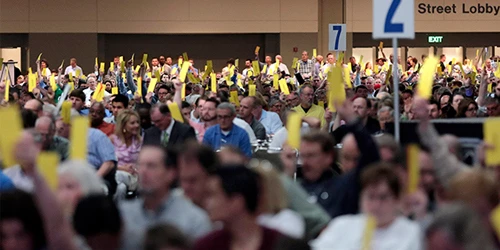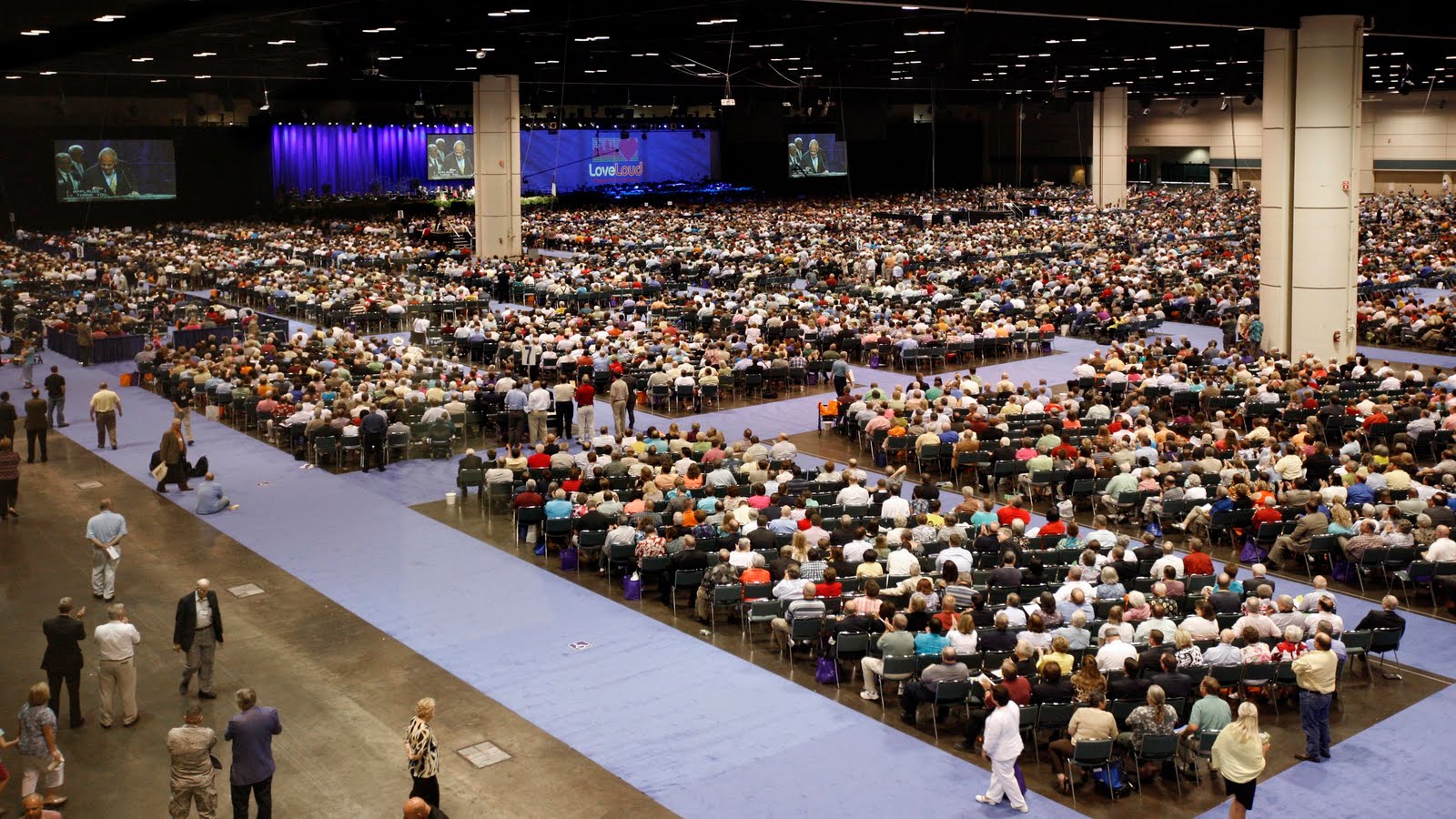As Southern Baptists gathered for their annual summer meeting, gloom hung over the nation’s largest Protestant denomination. Perhaps it is not the utter despair wracking the “mainline” denominations — Methodist, Presbyterian, Episcopal and others — who are in statistical freefall, according to the latest Pew Research Center religion study.
Indeed, the Southern Baptist Convention (SBC) stands out as a large, old American denomination that is not in demographic collapse — at least not yet.
Early warning signs may indicate that such a ruinous trajectory is imminent. Last week’s annual report from the SBC’s LifeWay Research showed that multiyear declines in membership and baptisms are accelerating, even as the number of SBC congregations has grown.
The SBC lost more than 200,000 members between 2013 and 2014, its largest decrease in over a century. As the 2015 SBC meeting reflects on these disturbing patterns, leaders should consider three steps that can help the SBC not only survive, but thrive.
1) They must get serious again about that “evangelical” distinctive of sharing one’s faith.
One of American evangelicals’ dirty little secrets is they engage in virtually no personal evangelism. Few tell others about their faith, or invite co-workers and neighbors to church. While overwhelming majorities of evangelicals affirm that witnessing about their faith is important, the SBC’s LifeWay Research has found that perhaps only a quarter make any effort to do so.
But evangelism is multifaceted. It includes everything from planting new churches to bringing up children in the faith. Retention is especially important for generational continuity in churches. Although Pew’s numbers suggest that evangelicals do tend to replace those they lose with new members, virtually all churches depend upon “children of the church” – people raised in Christian families – for the bulk of their members. SBC churches need to make sure its parents are equipped to explain and model the Christian life to their children.
2) Doctrinal rigor should remain at the core of SBC churches.
As our new book “Baptists in America: A History” suggests, the SBC’s “Conservative Resurgence” of the 1980s and 1990s promoted renewed attention to orthodoxy. Too often, other American denominations have downplayed (to their peril) the bracing truths of Scripture, including the grave realities of our sin, God’s justice and God’s offer of salvation through Jesus’s death and resurrection.
For most SBC churches, overt denial of the basic doctrines of Christianity, or of the Bible’s trustworthiness, is not an imminent risk. Instead, some parents and leaders subtly exchange rigorous Bible teaching for what Notre Dame sociologist Christian Smith has called “Moralistic Therapeutic Deism.” Here the stark, surprising gospel of Jesus fades into a cheaper American creed: “I have hope for heaven,” devotees think, “because I am an American, my good outweighs my bad, and God loves all his children.” Innumerable media and entertainment outlets, and even Christian-themed programs, peddle this message, but it is not Christianity.
The SBC must guard against anything that dilutes the historic message of Christianity. Rigor and purity may have been easier for Baptists to maintain in their early days in America, when other Americans widely viewed Baptists as troublemakers and even outlaws. (In the years before the American Revolution, authorities still routinely jailed and horsewhipped Baptist evangelists in places like Virginia.)
Over time Baptists became a dominant force in American culture, and especially since the emergence of the Moral Majority in the 1980s, Baptists began to think of themselves as political kingmakers. This introduced a risk that more culturally acceptable versions of Christianity, strongly mixed with contemporary politics, would gradually edge out the timeless message of the gospel of Jesus. Not that Baptists can ever be pristinely apolitical: Issues of religious liberty, marriage and other concerns will inevitably draw them in.
3) Southern Baptists must make sure that politics – especially Republican Party politics – really remains a secondary concern.
This week’s SBC Pastors’ Conference found itself embroiled in controversy over this issue, as it was to feature GOP presidential candidate Ben Carson, a Seventh-Day Adventist. Many wondered what his keynote address would have contributed, other than to reaffirm the impression that the SBC is a political agency. A group of younger SBC pastors affiliated with the group Baptist21 raised concerns about the Carson invitation, which organizers subsequently withdrew.
No denomination is indispensable to the work of God’s Kingdom. Yet we think there is still time for the SBC to pull itself back from the precipice of inevitable decline. The gripping message of the gospel of Jesus is, ultimately, the main reason people will join, serve and stay in Christian churches. Baptists became America’s Protestant juggernaut because they stayed focused on preserving and proclaiming that message. No watered-down or politicized version of the gospel will do.
–Washington Post



